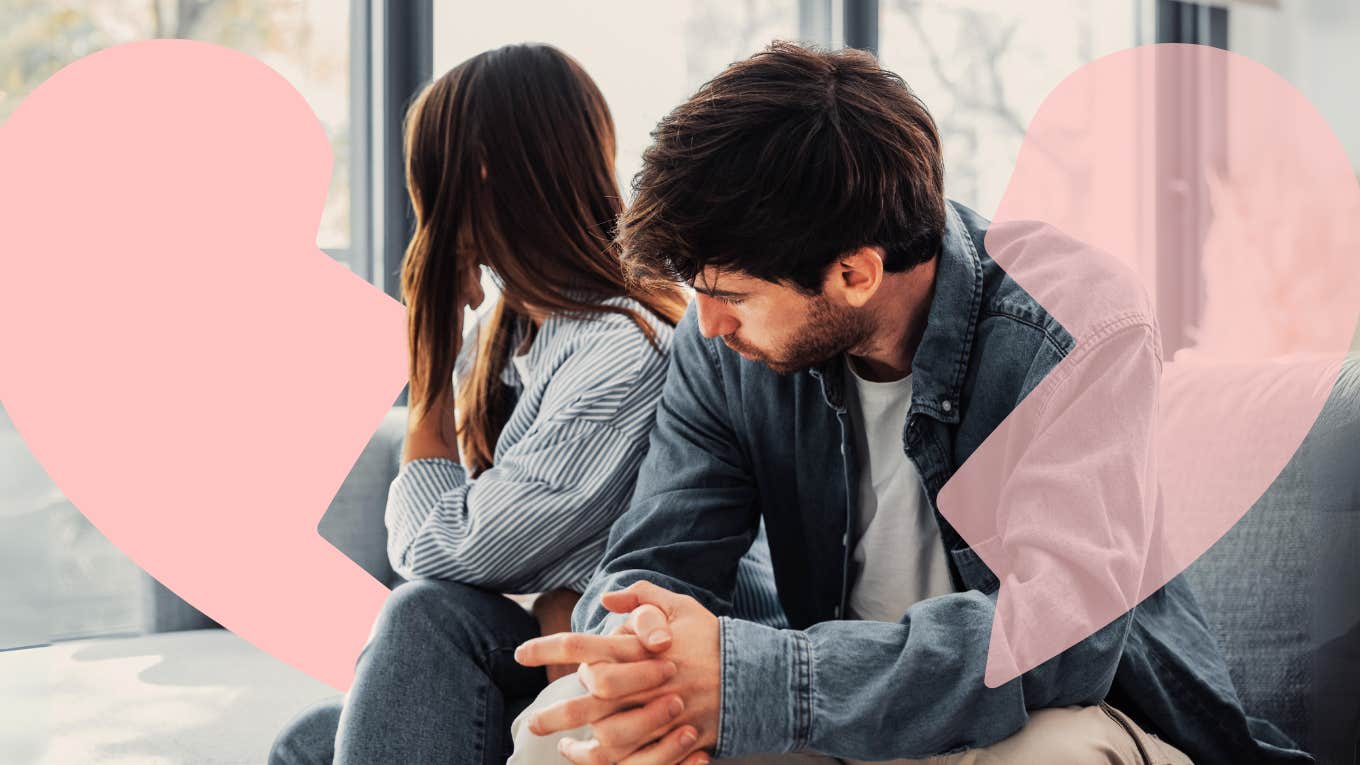6 Painfully Honest Reasons Your Partner Says You Don’t Love Them
If you resonate with these reasons, therapy can help.
 perfectwave | Canva
perfectwave | Canva Many clients insist to me that they love their partners, but their partners frequently say that they don’t feel loved at all. There are many reasons for this disconnect, across arenas from intimacy to communication to empathy. Let’s explore the six most common reasons that I see in practice for a partner not feeling loved!
Here are 6 reasons your partner says you don't love them:
1. They have preoccupied or fearful-avoidant attachment
They didn’t get enough love growing up and now their need for reassurance and love feels infinite, to both you and them. If you grew up always feeling like a parent’s attention was rarely fully on you, despite their best intentions, you may struggle with ever feeling like a partner loves you “enough.” This sort of childhood can also lead to a “scarcity mindset.”
2. You don’t express love very well
You grew up in an inexpressive or even emotionally neglectful home (read the book Running on Empty by Jonice Webb for more on this). You may even be alexithymic. While you do feel love for your partner, it is a tree falling in the forest situation, as they would never know from how you (don’t) express it. Working on communication in therapy can dramatically help if you never learned how to talk about feelings or express emotions openly. Remember, contrary to what some men may think, healthy women love when men express emotions.
3. You have an avoidant attachment style
If your partner is preoccupied as per point number one, then it’s almost certain that you are avoidant, as these two styles are subconsciously drawn to one another. You are the distancer to your partner’s pursuer, and while you may say the words “I love you,” your partner senses the ambivalence behind the words. In truth, you may be uncomfortable with need in general, especially emotional need.
4. You really do not love your partner, at least not romantically
The elephant in the room is that you are not and may never have been attracted to your spouse. You think they are a good person and may have married them because you knew they would make a great parent. You don’t want to divorce, so you convince yourself that you are happy and love your partner, but you aren’t as good an actor as you think, and your partner is picking up on something real.
5. You are depressed … or your partner is
When you’re depressed, it is difficult, or even impossible, to express love in a way that feels genuine to the other person. Your facial expressions are constricted, and your voice is a monotone. If your spouse is depressed, they are likely rejection sensitive, and they are extremely sensitive to any perceived slight… which may be no intended slight at all. Even a small change in your tone, which signifies nothing to you, may be taken as very upsetting and indicative of rejection to someone who is depressed.
6. Your partner is uncomfortable with vulnerability
When they say, “You don’t love me,” it is intended to make you come forward and reassure them. They find direct communication and expression of need to be overwhelmingly vulnerable, so they stick to little “tests.” This episode of my podcast discusses exactly why women with preoccupied attachments say things like, “You never say you love me!” and how to navigate this when it isn’t factually correct! Spoiler: this isn’t a “test”… it is a bid for reassurance without having to directly ask.
If any of these reasons speak to you, recognize that you are not alone in this dynamic. Couples therapy can help partners who are stuck in this dysfunctional dynamic, although if you or your spouse are depressed OR you are not in love with them, individual therapy would be a better choice.
Dr. Samantha Rodman Whiten, aka Dr. Psych Mom, is a clinical psychologist in private practice and the founder of Dr. Psych Mom. She works with adults and couples in her group practice Best Life Behavioral Health.

